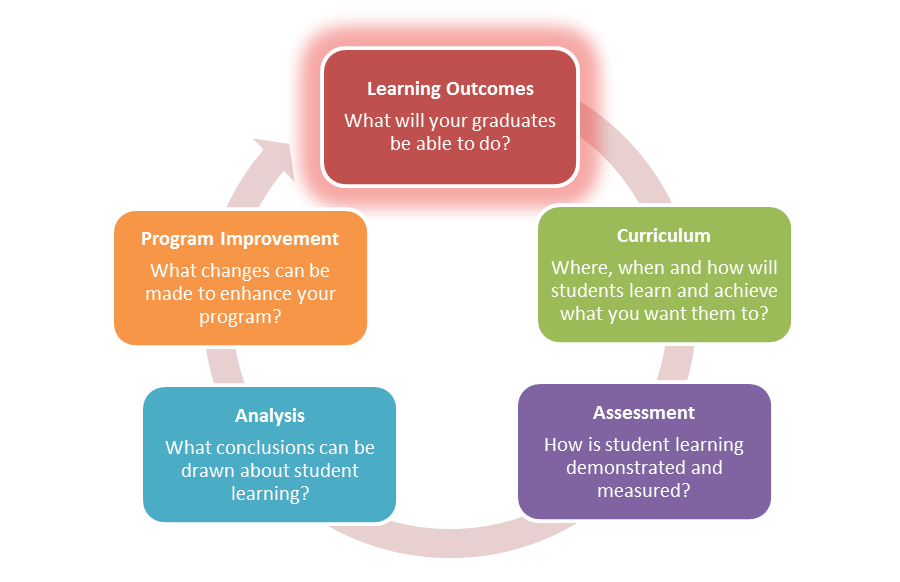Assessment of learning has always been an essential component of teaching; however this has typically been conducted at the course-level where the assignments, exams and projects of individual students are evaluated through grades.
More recently, attention has turned to the assessment of learning at the degree or program level. Program-level assessment allows faculty to look at their programs as a whole, rather than just a sum of courses and other requirements. It answers the question: What do we intend our students to learn from the program?
Steps in the Assessment Cycle
Program-level assessment typically involved the following steps:
- Writing of clear learning outcomes that are capable of being assessed
- Ensuring the program curriculum offers students the opportunity to reach those outcomes (curriculum mapping)
- Implementing an assessment plan to collect evidence of learning
- Analyzing that evidence to make judgements about the program
- Making changes to programs (as appropriate) based on those findings
- Continually refining learning outcomes and assessment practices to achieve the best evidence possible
The last step of the program assessment process is referred to as “closing the loop.” As the above illustration shows, assessment of learning is meant to be an on-going and cyclical process.

One Size Does Not Fit All
We expect that the character of learning outcomes, and the assessment strategies used to evaluate them, will vary considerably across campus depending on the profile needs of different disciplines. As such, the development of a learning outcomes assessment plan is a highly individualized process.
How We Can Help
Staff at the OVP are always available with expertise and resources to help you:
- Develop and refine learning outcomes for your program
- Map outcomes to program requirements and learning activities
- Select and implement an assessment strategy
For more information on meaningful program assessment, check out our presentation from the 2016 Teaching and Learning Symposium: Greater than the Sum of its Parts.